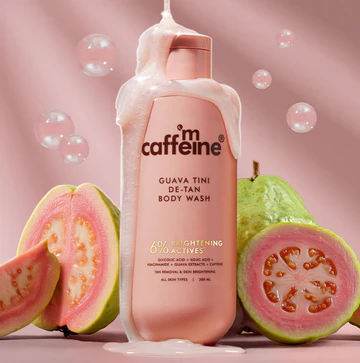Introduction
Welcome to your skin’s new best friend. When it comes to the soap vs body wash debate, you’ve likely wrestled with questions like which product leaves your skin feeling clean without stripping away moisture. Whether you’re battling dryness, sensitivity, or oiliness, understanding how soap vs body wash impacts your skin can bring genuine relief—and healthier skin. In this article, we’ll break down the surprising truths, walk you through the science of cleansing, and guide you to the best for your unique needs.
Understanding Cleansing Basics
Cleansing is more than suds. At its core, both soap and body wash aim to remove dirt, oil, and dead skin cells. Traditional soap is usually bar-based and made from saponified fats or oils, while it is a liquid formula containing surfactants, emollients, and humectants.
- Soap: Often higher in pH (alkaline), which can disrupt your skin’s natural acid mantle.
- Body Wash: Typically pH-balanced, with added moisturizers to help retain hydration.
Understanding this helps you see why some people experience tightness or dryness after using bar soaps, while others love the luxurious lather of a natural body wash. Your choice should align with your skin’s needs, which we’ll explore next.
How Soap and Body Wash Clean Your Skin
The Cleansing Mechanism
Surfactants at work. Both soap and body wash rely on surfactant molecules that latch onto oil and grime, allowing water to rinse them away. However, the type and concentration of surfactants
Can I Use Body Wash Instead of Soap?
Absolutely—and here’s why. Unlike many traditional soaps, a quality body wash often includes ingredients like glycerin and essential oils that provide hydration while cleansing.
Does Soap Dry Out the Skin?
Many people find bar soap drying because its high pH can strip away natural oils. If you ask, “Does soap dry out the skin?”, consider choosing a moisturizing bar soap or switch to a pH-balanced body wash designed for sensitive or dry skin types.
Suitability for Different Skin Types
Body Wash for Dry Skin
Dry skin craves hydration first. Look for a body wash labeled “for dry skin”, packed with humectants like glycerin or hyaluronic acid. These ingredients draw moisture into the skin, preventing the tight, flaky feeling that harsh soaps can cause.
Soap for Oily Skin
Oil control meets cleanse power. Bar soaps with ingredients like tea tree oil or charcoal can help absorb excess sebum. When your pores feel congested, a targeted soap can feel more effective. Just ensure you follow up with a lightweight, non-comedogenic moisturizer to avoid rebound oiliness.
Body Wash for Sensitive Skin
Sensitive skin often reacts to fragrances and harsh surfactants. A body wash for sensitive skin uses gentle, hypoallergenic surfactants and minimal fragrance. Brands like mCaffeine offer ultra-mild, coffee-infused body washes that soothe irritation.
Key Ingredients to Look For
Beyond the suds, ingredient choice can make or break your cleansing routine:
- Glycerin & Hyaluronic Acid: Humectants that lock in moisture.
- Natural Oils (Jojoba, Almond): Provide lightweight nourishment.
- Oat Extract & Aloe Vera: Calm redness and irritation.
- Activated Charcoal & Clay: Draw out impurities for oily or acne-prone skin.
When comparing both benefits, a formula rich in these ingredients often wins for both efficacy and skin health.
Environmental and Sustainability Considerations
Eco-friendly cleansing matters. If you’re committed to sustainability, consider the carbon footprint and packaging:
- Bar Soap: Lower water content means less transportation weight. Minimal or plastic-free packaging reduces waste.
- Body Wash: Look for recyclable bottles and formulas free from sulfate surfactants like SLS. Some brands offer refill pouches to cut down on plastic use.
Choosing the Best Cleansing Option for You
Your skin, your rules. To decide between them, ask yourself:
- What’s my skin type? Dry, oily, combination, or sensitive?
- What’s my pH priority? Do I need a balanced formula to protect my acid mantle?
- Do I care about scents? Fragrance-free vs botanical aromas.
- How green do I want to go? Packaging and ingredient sourcing matter.
Armed with these answers, you can select a product—be it an artisanal bar soap or a nourishing natural wash—that fits your lifestyle and skin goals.
Usage Tips for Healthier Skin
- Wash at lukewarm temperatures: Hot water strips oils faster.
- Use a soft sponge or washcloth: Enhances lather and gentle exfoliation.
- Limit frequency: Once a day is enough for most skin types to preserve moisture.
- Pat dry and moisturize: Seal in hydration immediately after showering.
- Rotate seasonally: A richer body wash in winter, a lighter soap in summer keeps balance.
Conclusion
Your skin deserves clarity. The choice ultimately comes down to personal preference and skin needs. For deep cleansing, a targeted soap bar can work wonders; for gentle hydration, a pH-balanced body wash often takes the lead. By considering your skin type, ingredient list, and environmental impact, you’ll land on the perfect cleanser. Ready to upgrade your routine? Try mCaffeine’s Coffee Bean for a deeply nourishing cleanse that honors both your skin and the planet.
Frequently Asked Questions
- Can I use body wash instead of soap?
Yes. A good product offers hydration and gentle cleansing, making it a solid alternative to harsh bar soaps. Explore mCaffeine’s hydrating options today. - Which is better for dry skin: soap or body wash?
Its formulated for dry skin—with humectants like glycerin—is typically superior, helping you lock in moisture without irritation. - Is a natural body wash really gentler on sensitive skin?
Often, yes. Free from sulfates and artificial fragrances, which minimize irritation and soothe sensitive skin types. - How often should I switch between soap vs body wash?
You can rotate based on seasonal needs or skin condition—use a richer body wash in winter and a gentle soap bar in summer to maintain balance. - Does using soap cause dryness or flaking?
Standard bar soaps can strip natural oils, leading to dryness. Opt for moisturizing bars with shea butter or switch to a pH-balanced body wash if you notice tightness. - Which ingredients should I look for in the best body wash for sensitive skin?
Seek out aloe vera, oat extract, and mild surfactants. These ingredients calm irritation and ensure a soothing cleanse every time.



